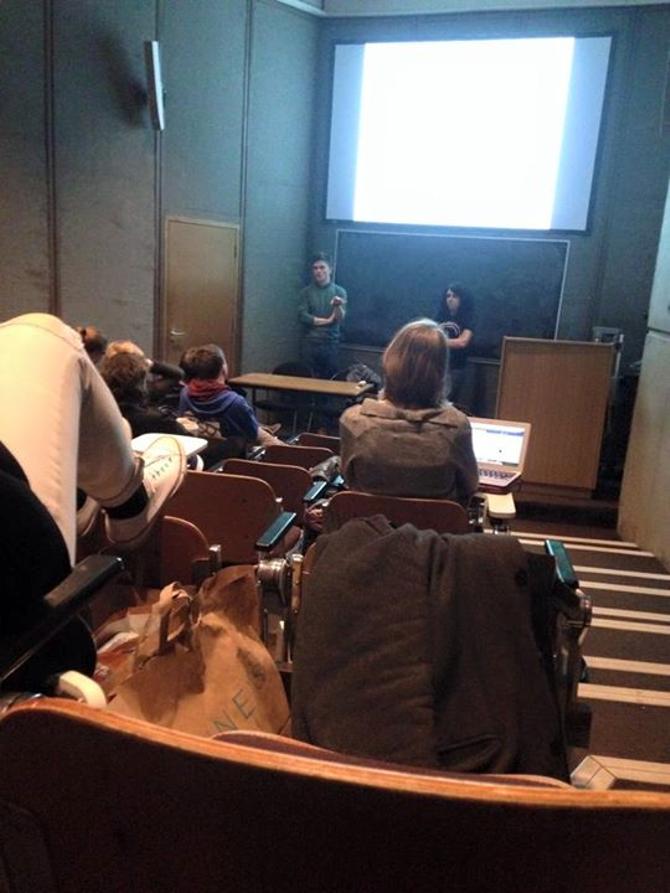
The charges include a €250 fee for sitting supplemental exams and an increase in the charge for a new student card from €3 to €20.
Domhnall McGlacken-Byrne, SU president, and Meg Lee, the GSU president, opened the meeting by going through the charges and their objections to the way College has tried to force them through.
One of the unions’ main objections is that College has no current plan to means-test the charges.
Both presidents gave the impression that it would be easy to convince them to introduce a waiver and possibly to bring down the cost.
Lee said that it is important to be practical and avoid burning the bridge between the unions and College.
“College has made it clear that there will be charges, but they are open to negotiation on what those are,” she said.
But students in the crowd asked if this sets a precedent; if we allow these charges now, will College raise them or introduce new ones in a year or two?
McGlacken-Byrne said it would be ideal for College and the students to lobby the government together for higher education funding, but this is a long-term plan and won’t deal with these charges.
Another student asked if the charges could be ringfenced so that we know the money is going towards student services.
McGlacken-Byrne explained that all of College’s income is absorbed into one central pot and redistributed; that ring fencing does not happen with the student contributions.
Lee has asked the board a number of times if these charges could be ring fenced, without a clear answer, it was said.
One postgraduate pointed out that students don’t all object to charges in principle, but when the services we get in exchange are perceived to be so poor – small rooms, broken toilets, zero-hour contracts – why should we be paying more?
McGlacken-Byrne presented the students with the options on how to move forward: “We can go to College, hat in hand, and say we’ll meet you somewhere in the middle. Or we can go back with an unequivocal no, say this is bogus and it can’t happen.”
A referendum on the proposed charges is due to take place alongside the forthcoming SU elections.
While he remains opposed to proposed increases, McGlacken-Byrne has made it clear that sabbatical officers cannot get involved in campaigns so they can represent whatever result happens.
Photo: TCDSU






